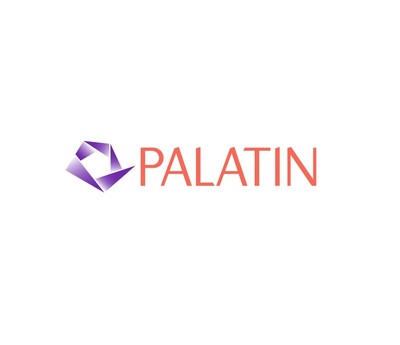CRANBURY, N.J., June 6, 2019 /PRNewswire/ -- Palatin Technologies, Inc. PTN, a biopharmaceutical company developing targeted, receptor-specific peptide therapeutics for the treatment of diseases with significant unmet medical need and commercial potential, today announced that the U.S. Food and Drug Administration (FDA) granted orphan drug designation for PL-8177 for the treatment of non-infectious intermediate, posterior, pan and chronic anterior uveitis. Non-infectious uveitis is a group of inflammatory diseases that produces swelling and destroys eye tissue and can result in vision loss.

"We are very pleased to receive our first orphan drug designation for a melanocortin agonist peptide from the FDA," said Dr. Carl Spana, President and Chief Executive Officer of Palatin Technologies. "Unlike corticosteroids, immunosuppressive agents, and biological therapies targeting specific cytokines or receptors, melanocortin receptor 1 peptides work to resolve chronic inflammations and restore normal immune function. We look forward to initiating clinical trials with PL-8177 for non-infectious uveitis, a high medical need disease with limited treatment options."
Palatin has conducted a single and multiple ascending-dose Phase 1 study with PL-8177 under an investigational new drug (IND) application for ulcerative colitis. Palatin plans to file an IND application for non-infectious uveitis with the FDA in the third quarter of calendar year 2019, and initiate a Phase 2 clinical study in the first half of calendar year 2020. In both animal studies and Phase 1 subcutaneous studies with PL-8177 no safety or tolerability concerns were reported.
PL-8177 has been evaluated in animal models of experimental autoimmune uveitis, a model presenting certain clinical features of human uveitis. In these studies, PL-8177 showed reduction of inflammation and restoration of normal retinal structure. Spana C, Taylor AW, Yee DG, Makhlina M, Yang W and Dodd J (2019) Probing the Role of Melanocortin Type 1 Receptor Agonists in Diverse Immunological Diseases. Front. Pharmacol. 9:1535. doi: 10.3389/fphar.2018.01535.
About Orphan Drug Designation
The Orphan Drug Designation program provides orphan status to drugs intended for the safe and effective treatment, diagnosis or prevention of rare diseases/disorders that affect fewer than 200,000 people in the United States. Orphan drug status provides benefits to drug developers including assistance in the drug development process, tax credits for clinical costs, exemptions from certain FDA fees and seven years of marketing exclusivity.
About PL-8177
Evolving research suggests that the melanocortin receptor 1 (MC1r) system plays an important role in anti-inflammatory responses and immunoregulation, including resolution of innate pro-inflammatory immune responses. PL-8177, a selective MC1r agonist peptide, is a synthetic cyclic heptapeptide with demonstrated efficacy in animal experimental autoimmune uveitis disease models. PL-8177 is a potent agonist at human MC1r, with sub-nanomolar affinity binding and EC50 functional values. PL-8177 is being investigated in an oral formulation for treatment of ulcerative colitis and other inflammatory bowel diseases, and in a subcutaneous injection formulation for treatment of non-infectious uveitis.
About Non-Infectious Uveitis
Non-infectious uveitis is a group of inflammatory diseases not due to an active infection that produces swelling and destroys eye tissue. The disease is caused by inflammatory responses inside the eye, which may be initiated by autoimmune responses, responses to infections or tumors within the eye or other parts of the body, physical injury or toxins. Uveitis is classified by where it occurs in the eye, including intermediate, posterior, pan uveitis and chronic anterior uveitis. Uveitis can be associated with several diseases, including autoimmune diseases. Initial non-infectious uveitis symptoms include blurred vision, eye pain, dark floating spots in vision and light sensitivity. Uveitis can cause vision loss or blindness if left untreated.
About Palatin Technologies, Inc.
Palatin Technologies, Inc. is a biopharmaceutical company developing targeted, receptor-specific peptide therapeutics for the treatment of diseases with significant unmet medical need and commercial potential. Palatin's strategy is to develop products and then form marketing collaborations with industry leaders in order to maximize their commercial potential. For additional information regarding Palatin, please visit Palatin's website at www.Palatin.com.
Forward-looking Statements
Statements in this press release that are not historical facts, including statements about future expectations of Palatin Technologies, Inc., such as statements about potential clinical indications for PL-8177, clinical trial results with PL-8177, potential actions by regulatory agencies including the FDA, regulatory plans, development programs, proposed indications for product candidates and market potential for product candidates, are "forward-looking statements" within the meaning of Section 27A of the Securities Act of 1933, Section 21E of the Securities Exchange Act of 1934 and as that term is defined in the Private Securities Litigation Reform Act of 1995. Palatin intends that such forward-looking statements be subject to the safe harbors created thereby. Such forward-looking statements involve known and unknown risks, uncertainties and other factors that could cause Palatin's actual results to be materially different from its historical results or from any results expressed or implied by such forward-looking statements. Palatin's actual results may differ materially from those discussed in the forward-looking statements for reasons including, but not limited to, results of clinical trials, regulatory actions by the FDA and the need for regulatory approvals, Palatin's ability to fund development of its technology and establish and successfully complete clinical trials, the length of time and cost required to complete clinical trials and submit applications for regulatory approvals, products developed by competing pharmaceutical, biopharmaceutical and biotechnology companies, commercial acceptance of Palatin's products, and other factors discussed in Palatin's periodic filings with the Securities and Exchange Commission. Palatin is not responsible for updating for events that occur after the date of this press release.
SOURCE Palatin Technologies, Inc.
© 2024 Benzinga.com. Benzinga does not provide investment advice. All rights reserved.
Trade confidently with insights and alerts from analyst ratings, free reports and breaking news that affects the stocks you care about.